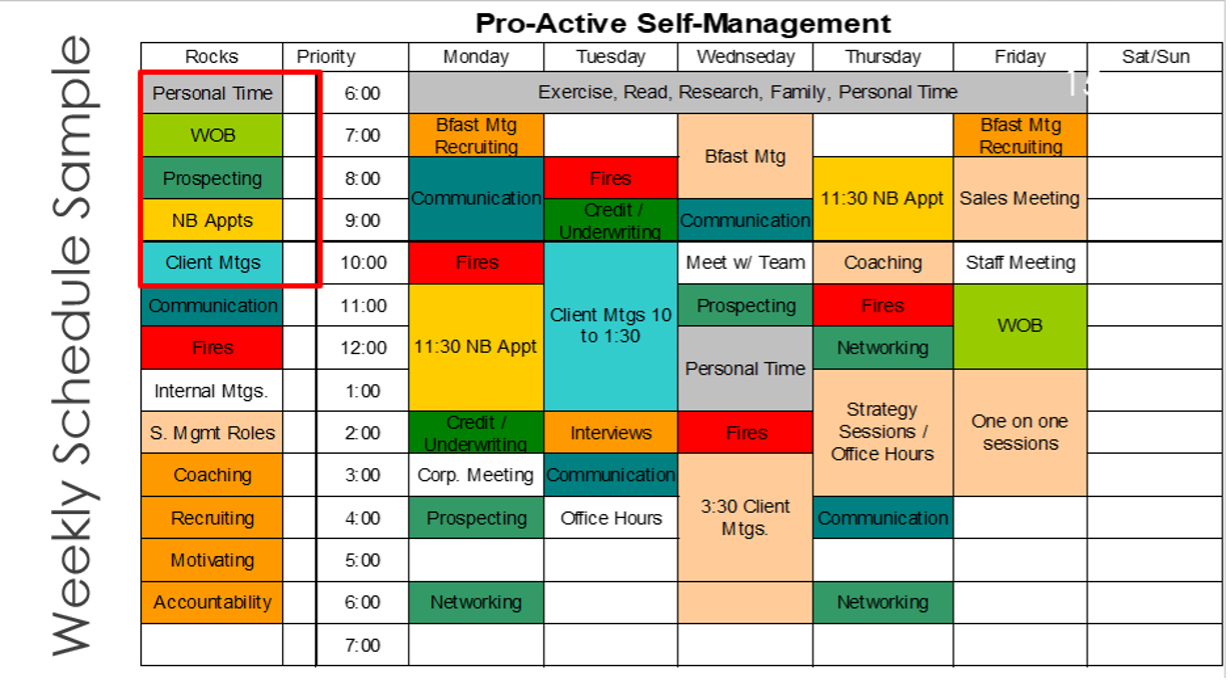There is no such thing as “time management.” Here is my take on the myth. It’s a very practical analysis that leads me to my strong conviction.
How many hours in the day do you have? How many minutes in those hours? How many seconds in those hours? All told the answers are 24 hours, 60 minutes to an hour (1,440 minutes in the day), 60 seconds (86,400 seconds in a day, 31,449,600 seconds in a year)! I dare you to speed time up, slow it down or stop it! You can’t. So how can anyone in their right mind call any program or concept “Time Management?
* I am not the only one in the sales professional development field that believes time management is a myth. See the resources at the end of this post for more information on debunking the myth of time management.
So, if you can’t manage it, what is the solution to figuring how to avoid having more to do than the time you have to do it? The obvious solution is this:
Do a better job of managing the time you have
In order to do that, it is helpful to understand what could be causing the lack of self-management that leads to insufficient sales behaviors and prospecting. You might have a substantial revenue flow from the business you already have so therefore lack the motivation. Some salespeople make excuses and blame service or account management for their own lack of self-management. Could also be that you have a fear of rejection. Let’s face it, none of us like to be told ‘no’. We find that many salespeople lack an effective phone approach, so avoid doing the activity. And finally, many have a need for approval, which is when a salesperson would rather do an activity that is easy and gratifying, than face the difficult job of prospecting and calling sales prospects. Does any of that sound familiar to you?
Here are some Rules to help you manage the time you have:
- Don’t make excuses for your inability to allocate time for prospecting
- Learn to discern the difference between ‘pay’ and ‘no pay’ activities and spend at least 33% of your time on ‘pay activities’.
- Use time blocking to identify your pay activities and then use time blocking in your calendar application. (You should know at least 30 days in advance what activity you will be doing at 2:00 on a Thursday).
- Be effective with people and efficient with things
- Stop trying to have ‘quick meetings’
- Start scheduling the appropriate amount of time with cushion on both sides of EVERY meeting you schedule
- Embrace technology designed to help you become more efficient at communicating, scheduling, and managing your practice.
Tactics to help you:
- Time blocking: Use your calendar app as a true self management application instead of an appointment placeholder. If I where to look at your calendar I should see, in addition to appointments, time blocked off for:
- Your personal time
- Your planning time
- Time for pro-active, intentional prospecting
- Administrative work
- Internal meetings
- Lunch meetings – networking activities
- Sales appointments
- Appointment preparation; pre calls, post calls, and 1 on 1 coaching for skill improvement
- Research
- Putting out fires
This is what it looks like:

- Discernment: To help you discern between the two boxes on the left side of the matrix above, you must ask yourself these three questions every time you are tempted to sacrifice your sales prospecting time in order to get something else done that has popped up in your day to distract you.
- If I don’t do this RIGHT NOW…
- Will someone die or become seriously injured, ill or be in jeopardy?
- Will I lose the client?
- Will I lose my job?
How likely is it that you will answer yes to any of those questions? Not likely. So, your challenge then is to be comfortable delaying your response instead of delaying your go to activity – prospecting.
*Additional resources debunking the time management theory.
- The Enterprisers Project. Need more convincing? Keep reading
- Forbes article 10 myths of time management
- Entrepreneur 5-time management myths that affect your workplace productivity
- Understanding the Sales Force What do Sales Managers Do with Their Time?







